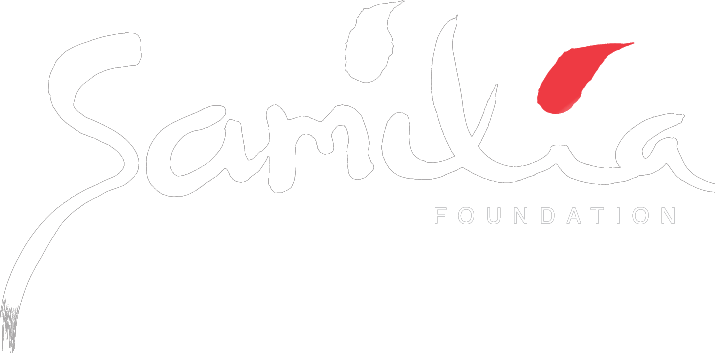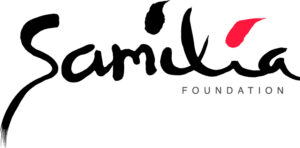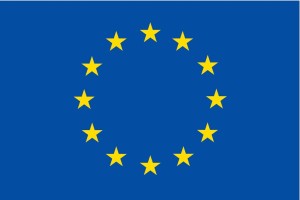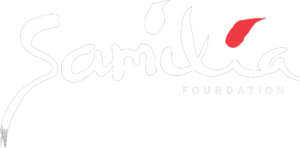The aim of the European project is to raise awareness, make companies more responsible and encourage them to get involved in the fight against human trafficking, mainly in the value chains of the products they develop or the services they use.
The Samilia Foundation has been able to realize the desire of companies to follow a more ethical and humanly responsible path, but also the need to have concrete tools to fight against this modern slavery.
As part of this effort to raise companies’ awareness, the Samilia Foundation has been awarded a European project entitled Comprehensive Corporate Toolkit to Address Demand for Human Trafficking.
The objectives of this project are threefold:
- to make companies aware of the risk of slavery in their value chain
- to encourage companies to develop responsible practices, from the basic product to the finished product
- to encourage social inclusion programs for former victims of trafficking by offering them training and stable employment, and to support businesses in these initiatives.
To this end, the Foundation, in collaboration with Not For Sale, an Amsterdam-based NGO, has created the following tools:
- An online tool to raise employee awareness within companies
- A cross-analysis of companies’ social inclusion needs
- Guidelines for the positive and successful social inclusion of victims within the company
- Ethical guidelines for production lines
- A video to raise awareness of trafficking
- A website containing all the tools
The social inclusion project was initiated with Delhaize Group in Romania, Bulgaria and Greece. This project proposes to develop professional integration programmes for victims of human trafficking or potential victims (vulnerable women at high risk) within the shops with the support and collaboration of local NGOs in charge of monitoring the candidates: Mega Image (Bucharest) and Picadilly (Sofia), Alpha Beta (Thessalonica), all three belonging to Delhaize Group. Delhaize Serbia is also interested in developing such programs within their shops.
Delhaize Europe has been challenged by the issue of human trafficking and is working with the Samilia Foundation to develop awareness and information workshops for the staff of their shops in the Balkans. The workshops take place in Belgium, Romania and Greece and bring together several dozen nationalities.
In 2016, the Samilia Foundation and Not For Sale launched the online awareness tool aimed at raising employees’ awareness of the issue of human trafficking. Initially this online training was taken by one thousand Delhaize employees. The training is now available to other companies and individuals. Employees from Interparking’s Brussels head office also took part.
Comprehensive Corporate Toolkit for Addressing demand of human trafficking
Tools-To-Educate
Training Guidelines
Employee Training to Help Identify Human Trafficking :
A 23 pages training guide to raise awareness about human trafficking among corporate employees. The training is based off the online behind course, and is intended as a complementary tool allowing interested parties to developp customized and interactive workshops based on the guide.
Tools- to- protect
Code of Conduct
Ethical Sourcing and Production Guidelines
Ethical Sourcing and Production Guidelineson how to establish a management system to mitigate risks for labor exploitation in supply chains. The guide walks compagnies through the process of developing and adopting a code of conduct, tracing suppliers and being transparent, conducting a risk analysis, and monitoring suppliers’ code compliance. It also highlights tools for worker empowerment as well as multi-shakeholder collaborations.
Entrepreneurship as a tool
The Road to REBBL
Through the below video series you can learn how the anti-human trafficking organisation Not For Sale used the entrepreuneurship to incubate a social entreprise, REBBL, to fight medern slavery. The three episodes illustrate the journey from identifying the issue, to generating ideas for it’s solution, and lauching a company to drive social change. To learn more about REBBEL’s story, visit rebbl.co For more information on how businesscan be used as a tool in the fight against human trafficking, read the Huffington Post article : A New Way to Fight Modern-day Slavery : Just Businesses.
OUR PROJECT
The Business Against Slavery project is a collaborative effort between the Samilia Foundation and Not For Sale, two global anti-human trafficking organizations, realized with the finacial support of the Européan Comission.
In 2014, the Samilia Foundation and Not For Sale joined forces and skills to bring together an innovative project targeting the corporate world. Alongside the Samilia Foundation and the Not For Sale, 2 Romanian organizations : GTR and Reaching Out an Italian NGO Idee Migranti joinde as partners in the preject co-funded by the European commission entitled « Comprehensive Corporate Toolkit to address demand for human trafficking ».
The main main objective of the Business Against Slavery project is to provide an approach for private sector companies to address the demand for Trafficking in Human Beings (THB). This objective has been reached by developing and piloting a toolkit for companies that targets both the demand for and supply of THB, as an effectivedemand reduction strategy requires addressing both aspects of the issues.To address the demand of human trafficking, the toolkit provides resources and guidelines to help companies educate employees and customers about the issue. The Toolkit offers a variety of ressources that provides private sector companies with a clear approach the demand and supply aspects of THB. A number of the tools has been developed in consultation with Delhaize Group.
To ensure the effectiveness of the toolkit, a pilote was conducted with Delhaize Group, a major retailer based in Brussels with operations in Romania, Greece and Serbia.
Project Results :
1) A Comprehensive corporate toolkit to guide private sector compagnies on how to effectively address demand for THB accessible at businessagainstslavery.org
2) An effective piloted implementation of the Corporate Toolkit to address the demand for THB
3) A docomented increase in the awareness and knowledge of THB among Delhaize employees in Romania and Greece;
4) Enhanced corporate social responsability programming and consideration of human rights within Delhaize’s operations;
5) Increased level of education among beneficiaries at GTR and Reaching Out in Romania and improvement of social inclusion programmes
6) The development of a line of textile products by Reaching Out beneficiairesunder the guidance of Idee Migranti’s stylists and textile experts and the resulting need to support a social company to provide job opportunities to victims and the further develop talents that emerged througout the collaboration between Idee Migranti and Reaching Out.
This Project has been possible thanks to the great collaboration and professionalism of each partner. We would like direct a special thanks and to emphesize the greay effort and passion of the Delhaize Group in helping making this project become a reality
ABOUT SAMILIA
About Not For Sale, The Nederlands
Samilia Foundation was created in 2007 in order to alert and raise awarness on human trafficking in Belgium, Samilia develops prevention and social inclusion projects in countries of origin of victims of trafficking wheter victims of sexual exploitation, forced labor and collaborates with the private sector, local and international NGO’s and governments in order to efficiently set actions to fight the root causes of human trafficking.
Samila offers corporate workshops on human trafficking in order to raise awareness on slavery in supply chains and get the private sector involved in the fight against this growing phenomenon.
The main goals of Samilia Foundation is to educate, raise awarness and facilitate working opportunities for survivors of trafficking or high risk population. With it’s prevention programms in Romania, Samilia Foundation help disavantaged adolescents and young single mums avoid traffickers traps. In Belgium, Samilia works at raising awareness amongst the general public about human trafficking.
By providing apprenticeships, NFS gives survivors of human trafficking a new perspective for the futur, teaching them jobs skills and offering them work experience. These skills enable to enter the labour market and bring the trainees closer to a normal life.
In 2015, NFS partnered with Regional Community College of Amsterdam (ROC)to expand the training program and provide professionnally recognized courses ans certificates. Two social companieswere opened under the name Dignita : a restaurant and a retail store.
NFS plans to create a model for training and employing survivors of human trafficking that can extended across the Netherlands and other cities throughout Europ, thus increasing the number of survivors that can assisted.
About our project partners
GTR
GTR is a non governmental, not involved political or religious, non-profit NGO.
GTR was founded in 2001, currently with representatives or branches in main cities of Romania.
GTR headquaters is in Timisoara. GTR staff is composed of 31 members who work with 150 volunteers.
In partnership with schools, rural communities, government agencies and ngo’s we deveop programs to prevent the human trafficking. We provide psychological and medical assistance to the victims and also we are developing program for reintegration and re-socialization of victims of trafficking human beings.
IDEE MIGRANTI
Lorem ipsum dolor sit amet, consectetur adipiscing elit. Ut elit tellus, luctus nec ullamcorper mattis, pulvinar dapibus leo.
Lorem ipsum dolor sit amet, consectetur adipiscing elit. Ut elit tellus, luctus nec ullamcorper mattis, pulvinar dapibus leo.





